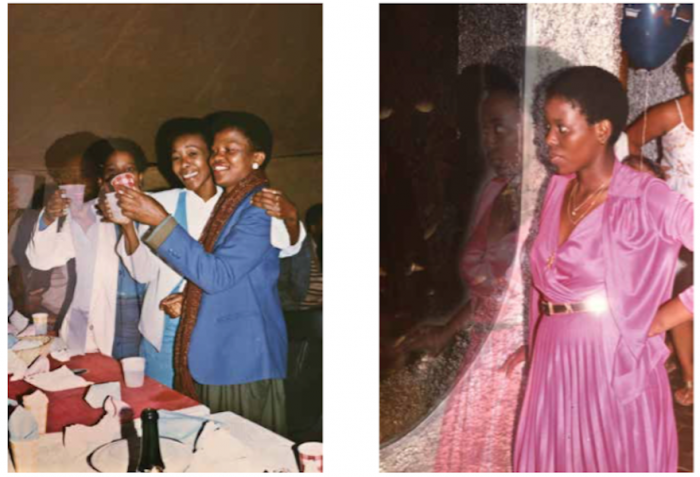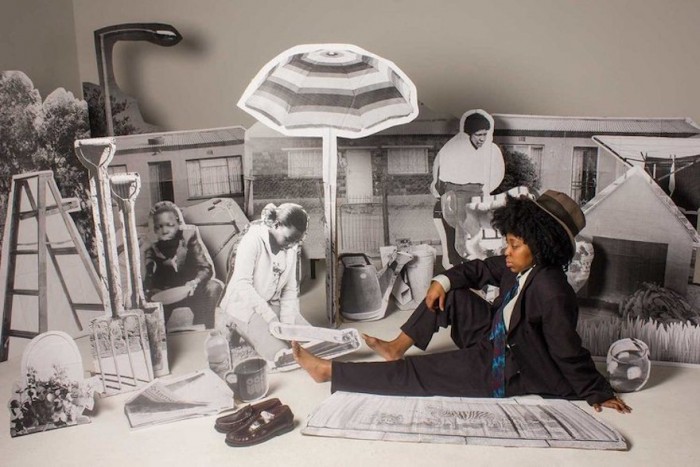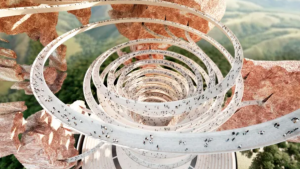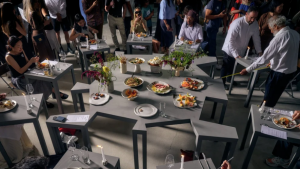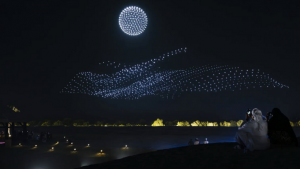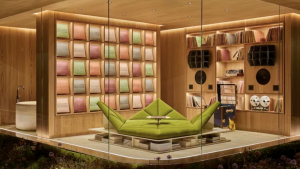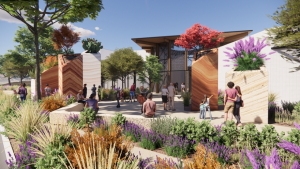Three years after losing her mother, photographer Lebohang Kganye searched for a way to live in her mother’s memory. The project that was born from this idea, Ke Lefa Laka, was awarded the Contemporary African Photography (CAP) Prize, an annual recognition of artists that engage with the African continent and its diaspora.
We spoke to the Johannesburg-based artist, who was announced as Global Artist of the Year in the Rise Art Prize in 2017. She speaks about memory, loss and recreating history through her work.
Ke Lefa Laka is Sotho for ‘my inheritance’. “It’s things that someone leaves behind for you which are a part of them,” explains Kganye. Partnering with her sister, Kganye chose to represent her inheritance by embodying her late mother.
She did this by wearing her mother’s clothes and inserting herself into photographs that were taken of her mother before her passing. She becomes a spectral mirror of her mother in the moments that shaped her life.
“Me trying to be her, and me trying to embody her was about me celebrating her but it also had to do with me finding her again. Trying to find a way for us to continue a conversation,” says Kganye.
The idea of wanting to live in these memories led Kganye around South Africa as she traced her roots. She says her family left the farmlands of the Free State behind to move to the city as Apartheid was ending. The first to leave was her grandfather, and so, the first home he bought became the go-to place for each relative and friend looking to start a new life.
Each family member she visited had a story about her grandfather, including how their surname changed as the Apartheid-era administration butchered the spelling.
“The oral history is important especially in relation to our surnames and clan phrases because a lot of it is told orally and it’s passed down orally and that’s why finding out what the actual surname was becoming less and less important,” says Kganye.
Kganye embodied her grandfather for the second part of the Ke Lefa Laka project. But instead of inserting herself into existing photographs, she recreated the stories that were told to her using black and white cardboard cutouts.
Dressed as her grandfather, Kganye is the only aspect of colour in the scene, creating a juxtaposition of the present and the past.
The artist explains that for her, this juxtaposition explores an aspect of history that isn’t often discussed: a large part of history and memory is in fact fantasy.
“I’m reimagining the scenes through what I’ve been told. It also speaks to the idea of how memory is not tangible. This idea of history being reliant on memory – there’s no truth in that. And it’s not a critique on that but it’s just a realisation,” she adds.
Kganye has exhibited in multiple cities in South Africa and also internationally in cities like London, Amsterdam, Paris and New York. While her work draws on personal history, her themes are universal. Kganye won The 2019 Camera Austria Award for Contemporary Photography for her work depicting the life and history of her family and South Africa as a whole.
“Anyone can relate to the search for belonging and family, and trying to include yourself in a family history, feeling dislocated in the family somehow, feeling like an outsider. So I think it’s quite relatable,” she says. “The project evolves around how my family landed in Johannesburg – how they ended up in the city from the farmlands. But it’s really a relatable story. There are stories of migration from around the world. It’s not a foreign story.”
Read more on thought-provoking photography:
Yannis Davy Guibinga interrogates the colour black and its relation to death
Hooded: Subversion through photography
Joshua Kissi on disrupting and diversifying stock photography

